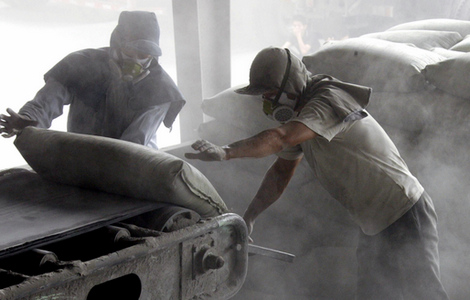New maglev line to connect western Beijing
Updated: 2011-08-19 07:12
By Chen Jia (China Daily)
|
|||||||||||
BEIJING - The country's first medium-low speed maglev line using Chinese technology is scheduled to launch in Beijing before March 2013, a chief project scientist has revealed.
"We're facing a tight timetable as we plan to try the first maglev train on the line by October 2012," Chang Wensen, China's chief project scientist for maglev technology and professor of the National University of Defense Technology, told China Daily.
The medium-low speed S1 Line will make China only the second country, after Japan, to have such a line, said Chang, who led the research team that developed the magnetic levitation, or maglev, technology.
As one of eight rail transit lines under construction in Beijing designed to form an urban transit network and help ease traffic gridlock, the S1 Line will extend from the western Mentougou district to Pingguoyuan subway station, the western terminal station of Line 1.
Construction is expected to cost about 6 billion yuan ($1 billion) and be completed in 2013, according to earlier reports.
"The maglev line will be a safe, low-noise and economical transport choice for people," Chang said, explaining that, at 65 decibels - about the level of normal conversation - it will not affect nearby residents and could save the huge expense of large-scale relocations.
"Compared with road vehicles, the spending on repairing maglev trains will also be reduced as wear and tear by friction can be avoided," he said.
Earlier tests also show the low speed maglev train emits almost no radiation, he said.
"The radiation is much less than a hairdryer or an electric razor," the professor said.
Construction on the project was slated to begin last year but was postponed several times because residents living near the proposed route raised concerns about exposure to radiation.
Those fears surfaced in May, when the draft plan for the maglev line was released. It was reported more than 300 residents living in areas of Mentougou and in the Bisenli community, which the S1 Line will pass some 20 meters away, signed a petition opposing the line.
Qi Fansan and other residents in Bisenli are concerned about radiation, even though tests indicated its levels will be safe.
Qi, a senior engineer with the Beijing National Railway Research and Design Institute of Signal and Communication, said he doubts the testing standards, which are different from European standards.
"The radiation will be there, no matter how small they said it is. Its negative impact may show in one or two decades," he said.
Besides concerns over radiation, power consumption of the maglev line is another problem facing Chang's research team.
Chang said the maglev line will consume about 15 percent more power than a subway or light rail service, although it produces less noise and needs less maintenance.
Wang Mengshu, an academic at the Chinese Academy of Engineering and a professor at Beijing Jiaotong University's tunnel and underground engineering research center, said maglev trains are nothing but "transport toys".
"It's difficult to repair and maintain the trains and rescue passengers if the train is out of order," he said in an earlier interview.
However, Chang said the equipment design can prevent the train from rolling off the track if it breaks down.
Otherwise, the train will travel on small hydraulic wheels and be taken away for repairs, he added.
Hot Topics
Anti-Gay, Giant Panda, Subway, High Speed Train, Coal Mine, High Temperature, Rainstorm, Sino-US, Oil Spill, Zhu Min
Editor's Picks

|

|

|

|

|

|







